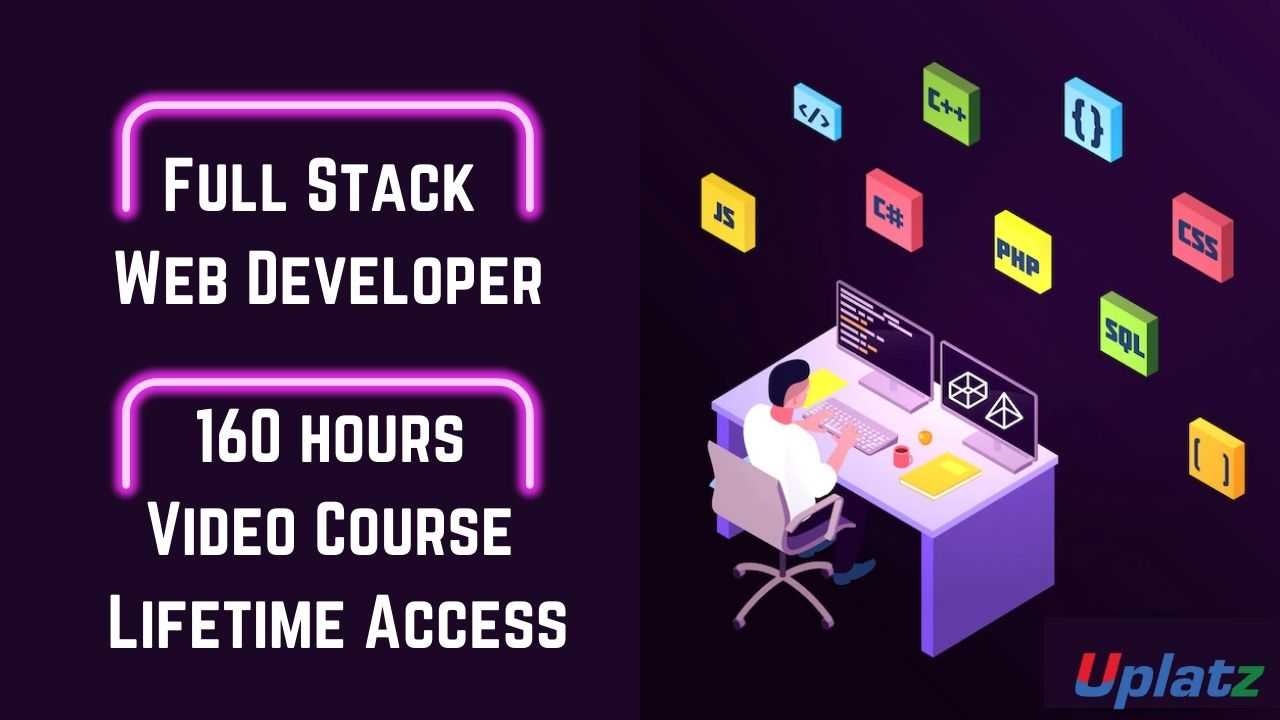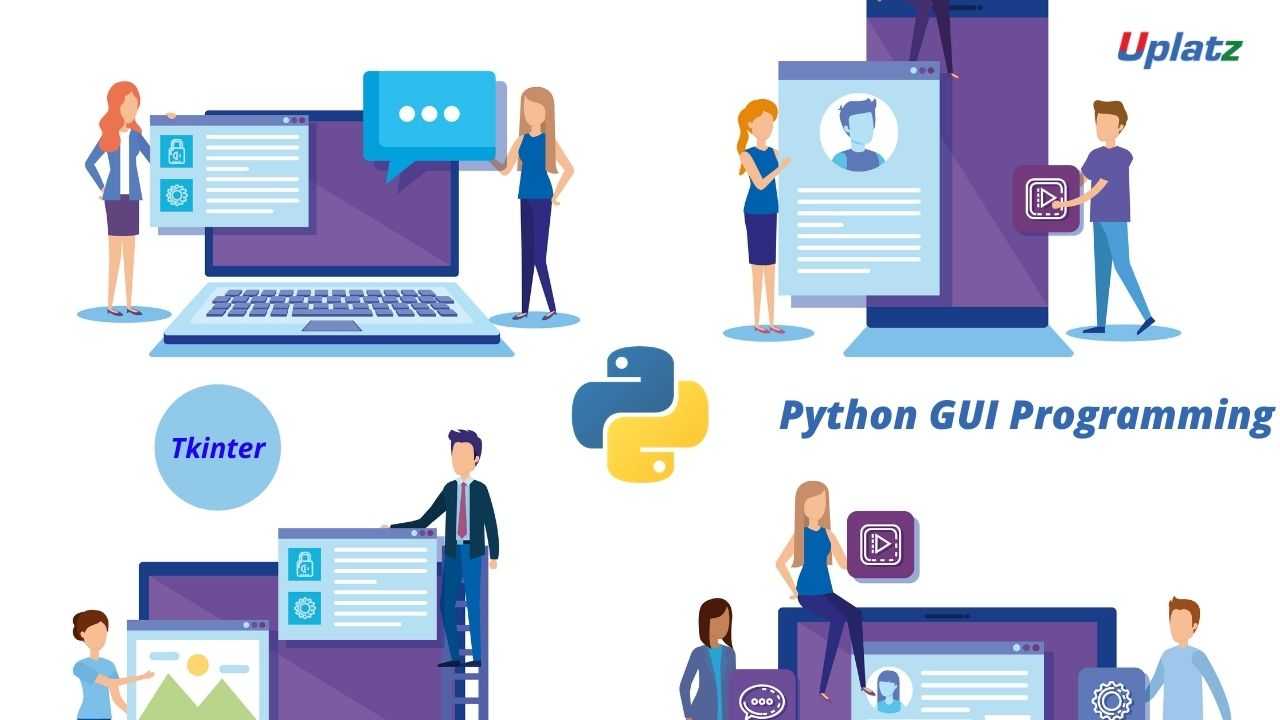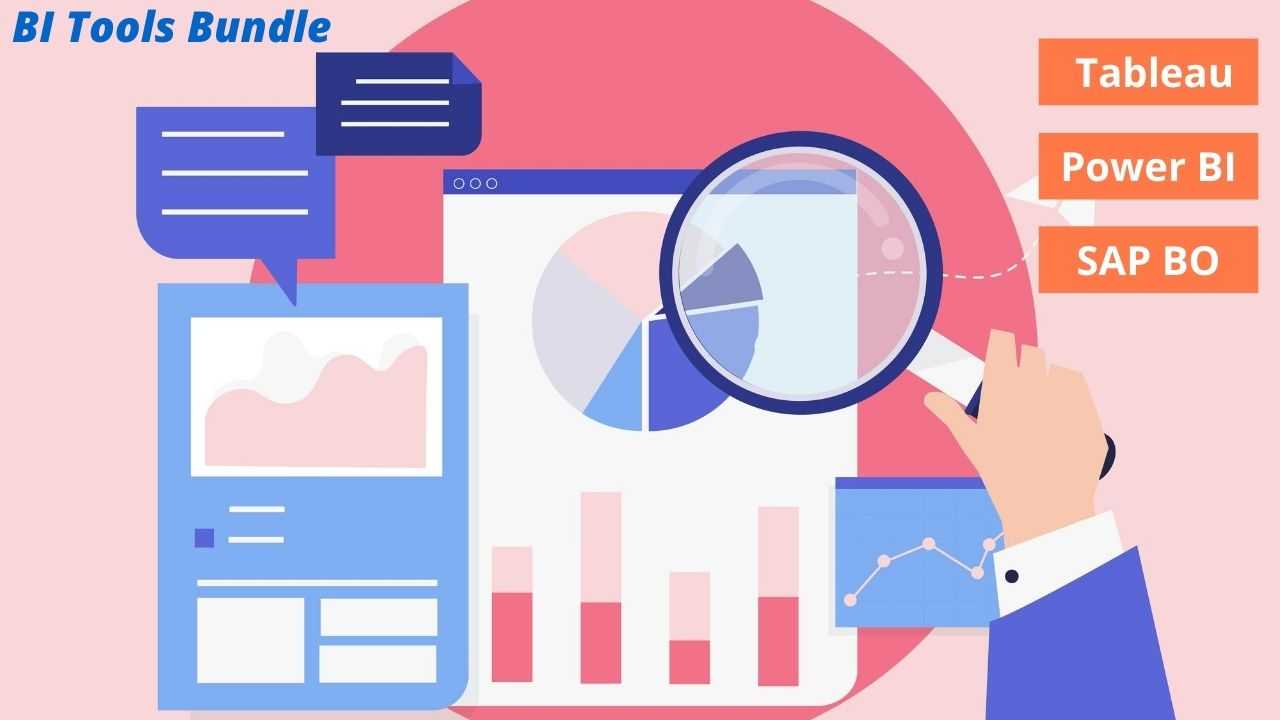Interview Questions - TensorFlow
List of top frequently asked TensorFlow Interview Questions & Answers. Crack Deep Learning / Machine Learning interviews and become top ML/DL engineerPreview Interview Questions - TensorFlow course
Price Match Guarantee Full Lifetime Access Access on any Device Technical Support Secure Checkout Course Completion Certificate 91% Started a new career
BUY THIS COURSE (
91% Started a new career
BUY THIS COURSE (GBP 12 GBP 29 )-
 99% Got a pay increase and promotion
99% Got a pay increase and promotion
Students also bought -
-

- Career Path - Full Stack Web Developer
- 160 Hours
- GBP 32
- 2236 Learners
-

- GUI Programming in Python using Tkinter
- 30 Hours
- GBP 12
- 923 Learners
-

- Bundle Course - BI Tools (Tableau - Power BI - SAP BO)
- 75 Hours
- GBP 22
- 954 Learners

This course by Uplatz focuses on commonly asked interview questions on TensorFlow. These TensorFlow Interview Questions have been designed specially to get you acquainted with the nature of questions you may encounter during your interview for the subject of TensorFlow. Normally questions start with some basic concept of the subject and later they continue based on further discussion and what you answer.
In this tutorial you will find a list of top frequently asked TensorFlow Interview Questions and Answers. TensorFlow is made up of two words Tensor and Flow; a tensor is known as data representation for multi-dimensional array and flow means a series of operations performed on tensors. Now we will cover some of the important and most frequently asked Tensorflow interview questions and answers. These TensorFlow Interview Questions will help both freshers and experienced to crack TensorFlow Interview.
TensorFlow is a Python-friendly open source library for numerical computation that makes machine learning faster and easier. TensorFlow is an open source software library for high performance numerical computation. Its flexible architecture allows easy deployment of computation across a variety of platforms (CPUs, GPUs, TPUs), and from desktops to clusters of servers to mobile and edge devices.
Machine learning is a complex discipline but implementing machine learning models is far less daunting than it used to be, thanks to machine learning frameworks—such as Google’s TensorFlow—that ease the process of acquiring data, training models, serving predictions, and refining future results.
Created by the Google Brain team and initially released to the public in 2015, TensorFlow is an open source library for numerical computation and large-scale machine learning. TensorFlow bundles together a slew of machine learning and deep learning models and algorithms (aka neural networks) and makes them useful by way of common programmatic metaphors. It uses Python or JavaScript to provide a convenient front-end API for building applications, while executing those applications in high-performance C++.
TensorFlow, which competes with frameworks such as PyTorch and Apache MXNet, can train and run deep neural networks for handwritten digit classification, image recognition, word embeddings, recurrent neural networks, sequence-to-sequence models for machine translation, natural language processing, and PDE (partial differential equation)-based simulations. Best of all, TensorFlow supports production prediction at scale, with the same models used for training.
TensorFlow also has a broad library of pre-trained models that can be used in your own projects. You can also use code from the TensorFlow Model Garden as examples of best practices for training your own models.
How TensorFlow works
TensorFlow allows developers to create dataflow graphs—structures that describe how data moves through a graph, or a series of processing nodes. Each node in the graph represents a mathematical operation, and each connection or edge between nodes is a multidimensional data array, or tensor.
TensorFlow applications can be run on most any target that’s convenient: a local machine, a cluster in the cloud, iOS and Android devices, CPUs or GPUs. If you use Google’s own cloud, you can run TensorFlow on Google’s custom TensorFlow Processing Unit (TPU) silicon for further acceleration. The resulting models created by TensorFlow, though, can be deployed on most any device where they will be used to serve predictions.
Course/Topic - Interview Questions - TensorFlow - all lectures
-
In this Tensor Flow Interview Questions tutorial, you will get to know about the different questions being asked by the interviewers in an interview and their answers regarding Tensor Flow learning like what is Tensor Flow and what do you know about Tensors.
-
In this TensorFlow Interview Questions tutorial, you will get to know about the different questions being asked by the interviewers in an interview and their answers regarding TensorFlow learning like methods to deal with the overfitting in TensorFlow
-
In this TensorFlow Interview Questions tutorial, you will get to know about the different questions being asked by the interviewers in an interview and their answers regarding TensorFlow learning like what do you understand by deep speech and how does TensorFlow use Python API.
-
In this TensorFlow Interview Questions tutorial, you will get to know about the different questions being asked by the interviewers in an interview and their answers regarding TensorFlow learning like what is image dashboard in TensorFlow.
-
In this TensorFlow Interview Questions tutorial, you will get to know about the different questions being asked by the interviewers in an interview and their answers regarding TensorFlow learning like what are neural networks and what are the advantages of using artificial neural network.
-
In this TensorFlow Interview Questions tutorial, you will get to know about the different questions being asked by the interviewers in an interview and their answers regarding TensorFlow learning like concept of logistic regression in TensorFlow and what is bias variant decomposition.
-
In this TensorFlow Interview Questions tutorial, you will get to know about the different questions being asked by the interviewers in an interview and their answers regarding TensorFlow learning like what is dimensionality reduction and explaining the concept of ROC curve.
-
In this TensorFlow Interview Questions tutorial, you will get to know about the different questions being asked by the interviewers in an interview and their answers regarding TensorFlow learning like difference between CNN and RNN and what is MNIST dataset.
-
In this TensorFlow Interview Questions tutorial, you will get to know about the different questions being asked by the interviewers in an interview and their answers regarding TensorFlow learning like what is the source and why is validation performed.
• Build deep learning models in TensorFlow and learn the TensorFlow open-source framework.
• Help to become a TensorFlow Certified Professional.
• Important TensorFlow Interview questions and Answers to help you prepare well for your TensorFlow interview process and brush up the TensorFlow concepts.
The TensorFlow Certification ensures you know planning, production and measurement techniques needed to stand out from the competition.
TensorFlow is an open-source library developed by Google primarily for deep learning applications. It also supports traditional machine learning. TensorFlow was originally developed for large numerical computations without keeping deep learning in mind.
TensorFlow is an open-source end-to-end platform for creating Machine Learning applications. It is a symbolic math library that uses dataflow and differentiable programming to perform various tasks focused on training and inference of deep neural networks.
The certificate program requires an understanding of building TensorFlow models using Computer Vision, Convolutional Neural Networks, Natural Language Processing, and real-world image data and strategies. You can learn more about this certificate program on our website.
Starting out in Data Science and Machine Learning is still difficult because of the different approaches one can take and are suggested. Even more difficult is having to prove your proficiency to potential clients and recruiters.
Uplatz online training guarantees the participants to successfully go through the TensorFlow Certification provided by Uplatz. Uplatz provides appropriate teaching and expertise training to equip the participants for implementing the learnt concepts in an organization.
Course Completion Certificate will be awarded by Uplatz upon successful completion of the TensorFlow online course.
The TensorFlow draws an average salary of $121,000 per year depending on their knowledge and hands-on experience.
There are various TensorFlow jobs available on the internet today. Looking at how high in demand it has gotten, you can see why it's a sure bet to get your developer certifications.
As Data Science and Machine Learning evolves, every tech-savvy developer must update their skills to remain relevant. So, whether you need a new job or not, taking the TensorFlow exam is important for improving your skills and understanding of Machine Learning. And when you pass the exam, you're unstoppable.
Note that salaries are generally higher at large companies rather than small ones. Your salary will also differ based on the market you work in.
Artificial Intelligence Data Scientist.
Machine Learning Trainer.
AI - Deep Learning/Computer Vision.
1) What is TensorFlow?
TensorFlow is a Python-based library which is used for creating machine learning applications. It is a low-level toolkit to perform complex mathematics. It offers users the customizability option to build experimental learning architectures. It also helps the users to work with them, and to turn them into running software. It was initially created by researchers and engineers working on the Google Brain Team, and It became open source in 2015.
TensorFlow is made up of two words Tensor and Flow; a tensor is known as data representation for multi-dimensional array and flow means a series of operations performed on tensors.
2) What do you know about Tensors?
The Tensor is a generalization of vectors or matrices of the n-dimensional array which is used in computer programming. It represents a multitude of data in the form of numbers. There are few other n-dimensional array libraries which are available on the internet such as Numpy, but TensorFlow stands apart from those libraries. It provides methods to create tensor functions and automatically compute derivatives.
A graph can conduct all operations in the Tensor. We can say that the edge of the node is known as Tensor. We need a feature vector as the initial input to implement a Tensor. The models are fed with the list of objects in the machine learning, and these objects are called feature vectors.
3) How many types of Tensors are there?
There are three types of Tensors used to create neural network models:
o Constant Tensor
Constant Tensors are used as constants, as the name suggests. They create a node that takes a value and does not change it. A constant can be created using tf.constant.
tf.constant(value, dtype=None, shape=None, name='Const', verify_shape=False)
It accepts the five arguments.
o Variable Tensor
Variable Tensors are the nodes which provide their current value as output. It means that they can retain their value over multiple executions of a graph.
o Place Holder Tensor
Placeholders Tensors are essential than variables. These are used to assign data in a later time. Placeholders are the nodes whose value is fed at the time of execution. Assume, we have inputs to our network which are dependent on some external data. Also, we do not want our graph to depend on any real value while developing the graph, then Placeholders are useful datatype. We can even build a graph without any data.
Therefore, placeholders do not require any initial value. They only need a datatype (such as float32) and a tensor shape, so the graph still knows what to compute with even though it does not have any stored values.
4) Explain TensorBoard?
TensorBoard is a suite of visualizing tools for inspecting and understanding TensorFlow runs and graphs. It is an easy solution to Tensorflow offered by the creators that let us visualize the graphs. It plots quantitative metrics about the graph with additional data like images to pass through it.TensorBoard currently supports five visualizations techniques such as scalars, images, audio, histograms, and graphs. It improves the accuracy and flow of graphs.
5) What is the main feature of TensorFlow?
Tensorflow has APIs support for a wide variety of languages such as Matlab and C++. Researchers are continuously trying to making it better. A javascript library, tensorflow.js, has also been introduced for training and deploying machine learning models.
6) What are the advantages of TensorFlow?
Some of the main advantages of TensorFlow are given below:
o It can be easily trained on CPU as well as GPU for distributed computing.
o It has auto differentiation capabilities.
o It has platform flexibility.
o It is easily customizable and open-source.
o It has advanced support for threads, asynchronous computations, and queues.
7) List a few limitations of Tensorflow.
TensorFlow has some limitations, as mentioned here:
o It does not provide support for OpenCL (Open Computing Language).
o It requires prior knowledge of advanced calculus and linear algebra along with a pretty good understanding of Machine learning.
o It has GPU memory conflicts with Theano if imported in the same scope.
8) Which client languages are supported in TensorFlow?
TensorFlow provides support for multiple client languages, one of the best among them is Python. There are some experimental interfaces which are available for C++, Java, and Go. A language bindings for many other languages such as C#, Julia, Ruby, and Scala are created and supported by the open-source community.
9) What are the three working components of TensorFlow Architecture?
TensorFlow architecture works in three parts:
o Preprocessing the data
o Building the model
o Training and estimating the model
10) Explain few options to load data into TensorFlow.
Loading the data into TensorFlow is the first step before training a machine learning algorithm. There are two ways to load the data:
o Load data in memory
It is the easiest method. All the data is loaded into memory as a single array. One can write a Python code which is unrelated to TensorFlow.
o Tensorflow data pipeline
TensorFlow has built-in APIs which help to load the data, perform the operations, and feed the machine learning algorithm easily. This method is mostly used when there is a large dataset.









